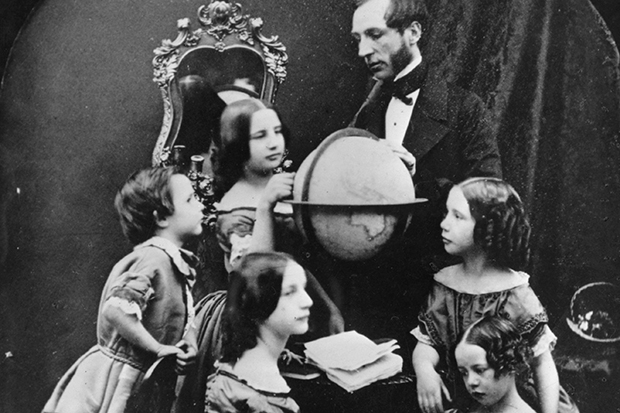‘Will Isis really use migrants as a weapon of mass destruction?’ asked one Common Entrance pupil in a tutoring session. Where such a profound question emerged from is anyone’s guess. Perhaps it was a cunning ruse to avoid analysing an especially tedious Wordsworth poem. But for a 13-year-old to feel comfortable enough to initiate a discussion about so politically sensitive a topic is becoming a rarity.
We desperately encourage our children to ask such questions and then, when they do, tend to answer them with vague platitudes. It would be easy to blame ‘time-starved’ parents, or vilify the ‘pushy parent’ brigade stereotyped so brilliantly in Amy Chua’s Battle Hymn of the Tiger Mother, so often condemned for maintaining that relentless testing is the only way their children can sprint up the educational ladder.
It is becoming clear that such politically or ethically sensitive questions are being ignored so as not to cause offence. Children are being held back from questioning, thinking and exploring out of fear that curiosity be confused with politically incorrect bigotry. As Education Secretary, Michael Gove introduced the concept of lessons in British values in the wake of the Trojan Horse scandal in Birmingham. His successor, Nicky Morgan, seems keen to continue with this, stating earlier this year: ‘Every school regardless, faith or none, should be promoting British values, because it’s the right thing to do.’
However, perhaps the answer lies not in teaching children British values but in equipping them with the tools to articulate difficult positions in a complex world. In classrooms of 30 children, this is pure fantasy. But in a more intimate one-on-one setting, it becomes a desirable possibility. Enter the private tutor.
Recent headlines have charted the rise of the ‘super-tutor’, professionals who in some corners of the globe regularly command upwards of £1,000 per hour. But such media focus detracts from the true value of a tutor in a world filled with digital distraction, information overload and a growing attention deficit. Absolutely, children should be taught about coding, apps, programming and anything else needed to put them at the cutting edge of technological innovations. But when can they find those moments of quiet reflection in which, in the words of Cardinal Newman, they can truly ‘disentangle a skein of thought’?
Some would argue that retaining a tutor for any longer than the time necessary for exam preparation is detrimental to a child’s ability to learn independently. Certainly it is if the child in question is essentially having their homework done for them. However, tutors who are able to engender in a child the confidence to address adult or taboo issues are increasingly sought after. Most tutoring websites trumpet the ‘confidence-building’ of private tuition, but this is generally in relation to exam prep. Only the top tier agencies have access to really gifted tutors. Will Orr-Ewing, the founder of Keystone Tutors, selects only 30 tutors out of an application pool of 3,000 while others including Bright Young Things, Osborne Cawkwell and Quintessentially Education conduct rigorous interviews and background checks.
There will always be a market for exam preparation, just as there will hopefully always be one for a British education. But tutoring is no longer the preserve of a wealthy international elite who view tutors as an accessory as much as the latest Lamborghini Aventador. Increasingly, they are being hired to stretch the ablest of minds as much as they are to strive to boost the confidence of others.
That the ability to analyse complex questions is something we are in danger of losing is underlined by the furore surrounding a question pitched at 13-year-old scholars sitting an Eton entrance examination. The question laid out the following scenario and instructions: ‘The government has deployed the Army to curb protests. After two days the protests have been stopped, but the Army killed 25 protesters in the process. You are the Prime Minister. Write the script for a speech to be broadcast to the nation in which you explain why employing the Army against violent protesters was the only option available to you, and one which was both necessary and moral.’ The tale of the question spread like wildfire, with people appalled that children would be asked to ‘justify’ killing.
Teaching a child how to organise and express their views is something teachers have been doing for decades. That hasn’t changed. But unless children feel able to express and explore their own opinions without the risk of censorship, they will have no views to organise.





Comments